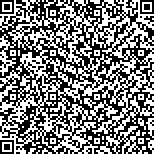| 摘要: |
| 海湾扇贝(Argopecten irradians)是典型的雌雄同体型贝类, 行体外受精, 能自体受精也能异体受精, 因此可产生3 种不同形式的交配方式: 杂交(Out bred)、近交(Inbred)和自交(Selfing)。本研究筛选了10 对多态性微卫星引物对海湾扇贝4 个不同近交梯度共8 个家系基因型进行了遗传分离分析。从偏分离标记的个数来看, 杂家家系最多, 其次是自交一代和自交二代, 最后是近交家系。结果表明只有自交家系后代基因型存在纯合子缺失, 部分证明了显性遗传效应, 同时筛选出3 个与有害基因连锁的微卫星标记。 |
| 关键词: 海湾扇贝(Argopecten irradians) 近交衰退 微卫星 偏分离 |
| DOI: |
| 分类号: |
| 基金项目:国家自然科学基金(30800842); 国家高技术研究发展计划(863 项目, 2012AA10A410); 中国科学院知识创新工程青年人才领域前沿项目以及中国博士后基金(20090451358) |
|
| Microsatellite segregation distortion analysis of the out bred, inbred and selfed families of the Bay scallop(Argopecten irradians) |
|
|
| Abstract: |
| The bay scallop(Argopecten irradians)is a hermaphroditic marine bivalve. It has male and female gonads simultaneously, and exerts external fertilization. So it has three breeding manners: outbreeding, inbreeding and selfing. In this study, 10 microsatellites primers were used to test the segregating distortion in two outbred, two inbred and four selfed families (three selfing for the first generation and 1 for the second generation). The outbred families were found to have the most segregated markers, followed by the selfed families for the first generation and the selfed-families for the second generations, and the inbred families were found to have the least segregated markers. The homozygote deficiency loci was only found in the selfed families, which means partial dominance may be the genetic basis of inbreeding, and we also found three markers might be linked to the lethal genes. |
| Key words: Argopecten irradians Inbreeding depression SSR Segregation distortion |
